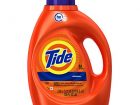In October I blogged about the efforts of television networks, producers and advertisers to thwart “ad skipping” as practiced by the more than 1 million avid viewers using TiVo or digital video recorders.
[…] growing anxiety among many advertisers and network executives about the rise of personal video recorders, like TiVo's , which make it easy for viewers to skip commercials […]
I've always referred to the use of TiVO and DVR devices as appointment television. That is, watch the programming the interests you when you want to. Not when the networks or cable channels deem the appropriate viewing time for its content.
For me, I like watching television commercials. In fact, most of the time I get more enjoyment from them than the trash that is called programming by these networks and cable channels. But that's another story.
In Today's New York Times I learned that British Gentlemen and “Who Wants To Be A Millionaire” producer Michael Davies is looking to either reinvent television programming, or take a step back into the golden age of TV when single sponsor programs were the norm. And I applaud his efforts. But I'm not sure it's all good.
[…] a forward-looking response to a technological threat to the business, it actually harks back to television's earliest days, when a single sponsor bought a time period and presented a show, like the “Kraft Television Theater” or “The Philco Television Playhouse,” and featured only its own products in its commercials. The roots go even deeper, all the way back to the beginning of soap operas, a genre that owes its name to the laundry detergents that began sponsoring them on radio. Early soap operas incorporated scenes that had characters do the washing while praising the product […]
Davies new program is going to be a variety show. He wants to bring back and reinvent The Ed Sullivan Show. That is, the show will not be interrupted by television spots. Ed Sullivan introduced America to The Beatles and a host of other firsts. Running 23 years from 1948-1971 it was the longest running variety show ever. Davies' Variety Show is going to be different, however. There will be advertising. But it's different. This time, it's brought to you by Nokia, Pepsi and any other brands Davies and his team can persuade to sign up. And the advertising will be blended in to the program as content.
[…] The sponsors and Mr. Davies want to write a template of sorts for how future television shows can deal with the problem of viewers' using digital recorders by TiVo and its competitors to eliminate commercials […]
As I noted in October, the blurring of advertising and programming/content is a double edged sword. While Davies promises NOT to pull the wool over the viewers eyes by maintaining his integrity with blatant display of commercialism and sponsorship. But can we trust him. According to the Times, Davies is considering selling guest spots. Imagine Capital Records paying to get the Beatles on Ed Sullivan. It simply is more sterile, homogenized and force fed products for the sake of avoiding “ad skipping”. Hell, why not still sell the ads for the millions of others who have not adopted TiVO.
[…]the show could charge a movie company, for example, for an appearance by one of the stars of a new film. It could also charge for guest hosts […]
Davies' concept takes product placement to an entirely new level. This is truly interactive product placement. And while he promises that the audience will know what he's doing, I think he's overestimating the cognitive capabilities of the television watching public. One thing's for sure: the industry is watching. And if he's successful maybe, just maybe, advertisers will start to abandon the tried and true 30-second television spot for something new. Hey. It's all about evolution. Isn't it?



